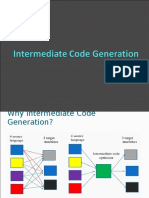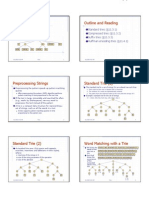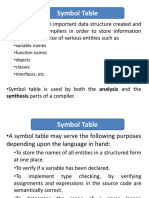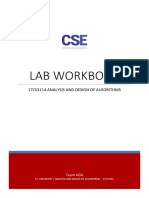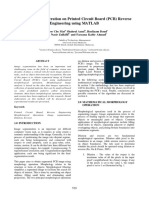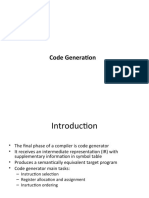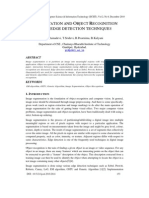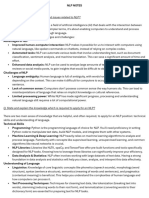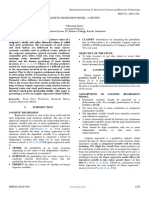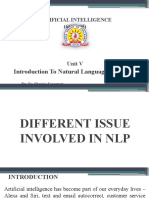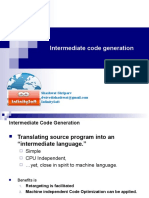0% found this document useful (0 votes)
117 views22 pagesIntermediate Code Generation
This document discusses intermediate code generation in compilers. It explains that the front-end of a compiler translates source code into an intermediate representation, from which the back-end generates target machine code. Three common types of intermediate representations are described: graphical, postfix notation, and three-address code. Three-address code is discussed in detail, including the use of quadruples and syntax-directed translation to generate three-address statements from source code. The document also covers symbol tables for managing variable declarations and scopes.
Uploaded by
Ishana AdhikariCopyright
© © All Rights Reserved
We take content rights seriously. If you suspect this is your content, claim it here.
Available Formats
Download as PDF, TXT or read online on Scribd
0% found this document useful (0 votes)
117 views22 pagesIntermediate Code Generation
This document discusses intermediate code generation in compilers. It explains that the front-end of a compiler translates source code into an intermediate representation, from which the back-end generates target machine code. Three common types of intermediate representations are described: graphical, postfix notation, and three-address code. Three-address code is discussed in detail, including the use of quadruples and syntax-directed translation to generate three-address statements from source code. The document also covers symbol tables for managing variable declarations and scopes.
Uploaded by
Ishana AdhikariCopyright
© © All Rights Reserved
We take content rights seriously. If you suspect this is your content, claim it here.
Available Formats
Download as PDF, TXT or read online on Scribd
/ 22
